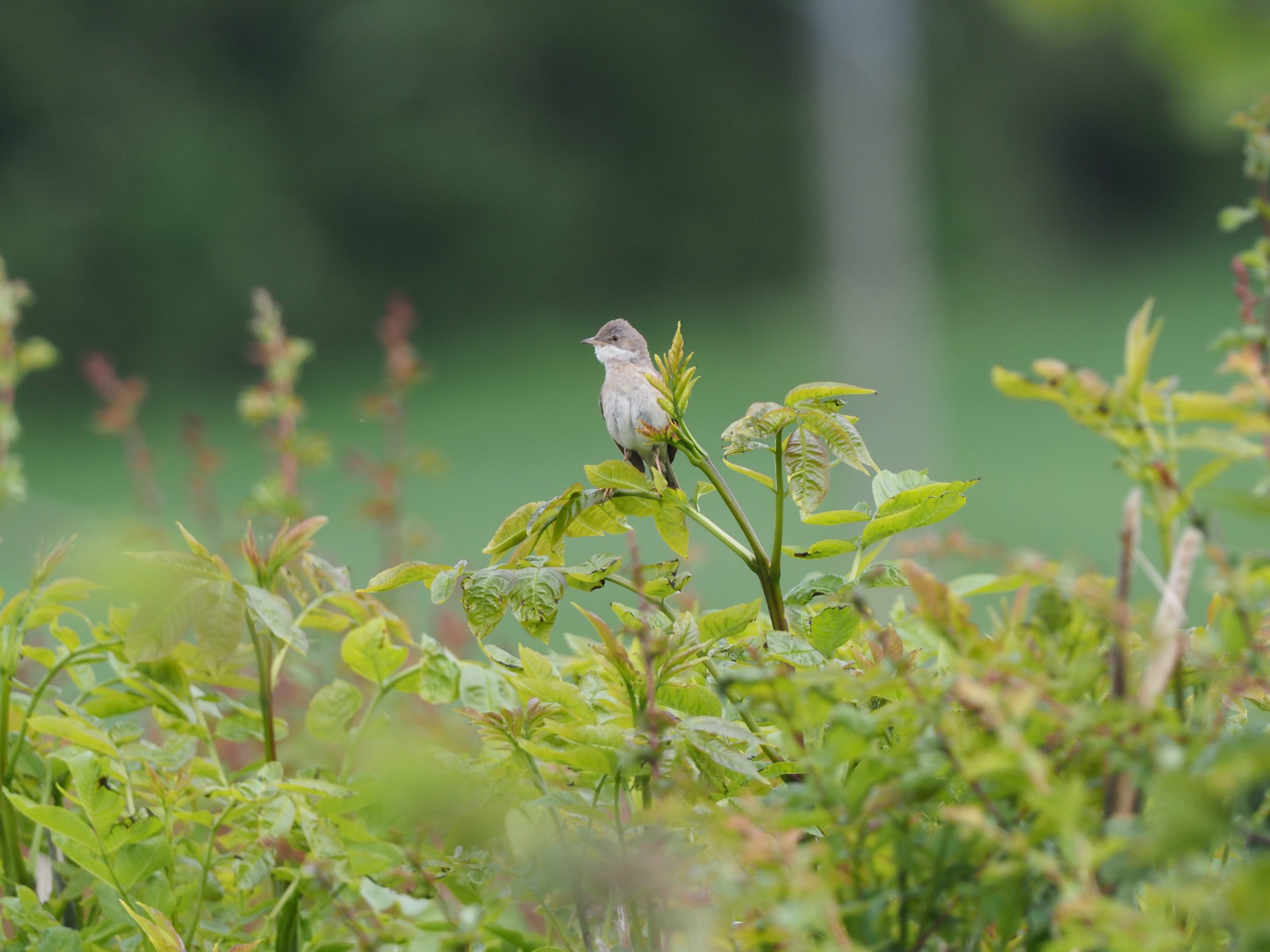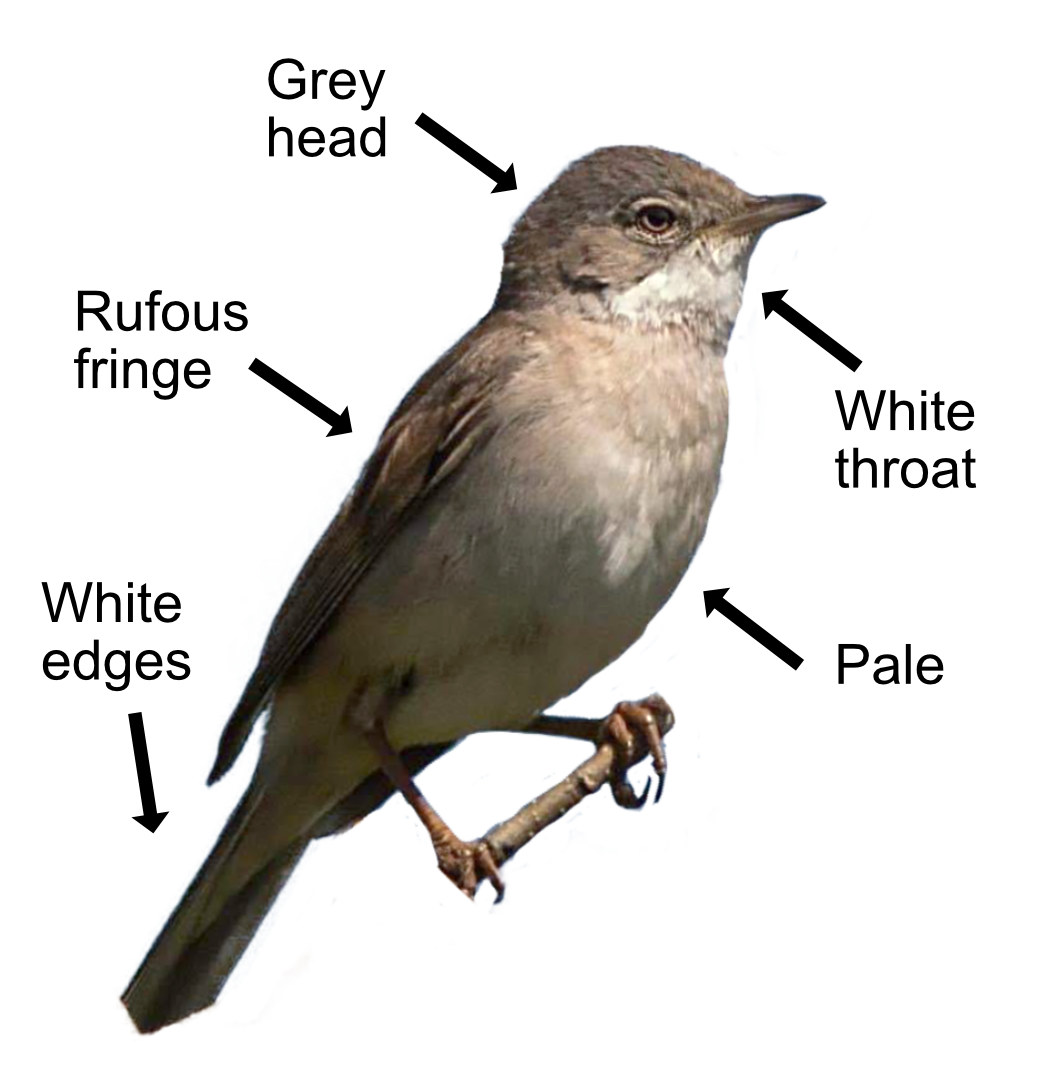
A common summer visitor that likes a good hedge to sing from. They come all the way from the Sahel region of North Africa. Their characteristic is their white throat and buzzy, scratchy song which they often sing while doing a 'parachute' descent.
The Whitethroat is similar in size to a Great Tit and stands alert and perky. They have a white throat, grey head, reddish-brown wings that are rufous fringed, and a pale pink or grey breast. They have a long, slim tail with white edges that can be seen when flying. The female is similar to the male, only a little browner. They skulk in the bushes during August while they do their moult. When not skulking, they love to sing scritchy-scratchy jumbles of verses at you or an alarmed buzzing "chrrrr!" if you get too close.
Whitethroats feed mainly on insects like beetles, aphids, caterpillars and flies. They eat berries in late summer when getting ready to migrate.

The male Whitethroats arrive here about 10 days before the females and set up territories ready for when their potential partners arrive. He builds several cup shaped nests in a hedge or other dense vegetation. The female then selects one and completes the structure to how she likes it. She lays 4-5 eggs in late April or May which hatch after 11 days. Both parents incubate the eggs, though mum usually does the night shift while dad looks out for predators. The young can fly after 10 days and stay with mum and dad for 2-3 weeks before becoming fully independent. Whitethroats usually have two broods.
They can be found across most of Britain, though they avoid mountains and urban areas. About 1 million pairs are here between April and October. They suffered a population crash in the late 1960s because of a drought in Africa, but their numbers have since recovered. Their Latin name is 'sylvia communis' where 'communis' means 'common' and 'sylvia' is the word for a woodland sprite derived from 'silva' for wood or forest. A common woodland fairy sounds right for something that sings while gracefully parachuting down.